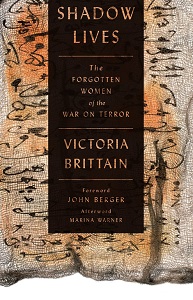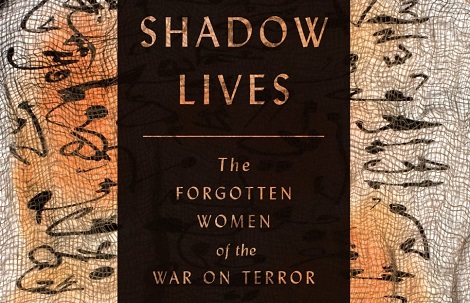
This is but a prelude to commenting briefly upon Victoria Brittain’s extraordinary recent book of humane disclosure, SHADOW LIVES: THE FORGOTTEN WOMEN OF THE WAR ON TERROR (London: Pluto, 2013; distributed in the United States by Palgrave Macmillan). Brittain is a journalist who not only sees in the dark, but what is even rarer among the restless practitioners of this profession, she stays around long enough to listen. Here she listens with empathy and insight to the words and experience of women whose male partners have been targeted in Britain and the United States by the rapacious masters of homeland security in the years since the 9/11 attacks. These women and their children, mainly living in Britain, are the forgotten and neglected ‘collateral damage’ of those who are detained year after year without charges or trials as terrorist suspects. As the book makes clear, Muslims as a distinct ethnic and religious group, have been deprived of rights available to others accused of political crime. She quotes an American lawyer, Linda Moreno, “After 9/11 the Constitution when it comes to Muslims, especially Palestinians.” (p.161) But it was not only the liberal governments that were at fault, it was also the media that stereotyped anyone accused of being a jihadist or somehow sympathetic with the aims and activities of those alleged to be guilty of acts of terrorism as unquestionably evil, and such a menace as to deserve ill-treatment. In Brittain’s words, “[t]he enormity of the injustice perpetrated over a decade and more has been airbrushed out of America’s and Britain’s mainstream consciousness.” She goes on to ask a question we need to ask ourselves with all due gravity—“How did we get so coarsened that this is virtually unremarked?” (p.23)
The real story here is that of several women who try to live in the ruins created by the detention of their husbands, seek to do whatever they can to bring normalcy to their family life, and raise their children as lovingly as possible in the process. It is a difficult life where the reverberations of Islamophobia are daily felt via the hostility of neighbors and the treatment experienced in schools and elsewhere. In other words, society, as well as government and the media, are complicit in the incidental, yet severe, punishments endured by these families of targeted individuals. Yet the picture is not entirely grim as these women are also courageous and determined not to be defeated, even as they struggle against depression and acute anxiety, as well as the loneliness associated with the loss of their loving partner and co-parent. And what is worse in some ways are witnesses to the collapse of their men due to the mistreatment of prolonged prison experiences unalleviated by the reality of indictments and charges. These men are mainly held on the basis of secret evidence that is not even disclosed to their lawyers, and the majority seem entirely innocent, victims of post-9/11 panic politics nurtured by the nanny security state. When in Britain such detainees are released, it should not be confused with ‘freedom’ because the former prisoner is require to wear electronic tags, subject to curfews, daily reporting to local police, living with rigid restrictions on visits by friends, routine intrusions in family space by security personnel, even prohibitions on use of computers. In summing up the overall ordeal of these families, Brittain comments, “[f]or all of them, something worse than their very worst nightmares had come true.” (p.149) One of the daughters who had endured this reality asks plaintively, “[l]isten to my story, then decide if you will be able to live my life.” (p.67) It occasions no surprise that the several of the men attempt suicide or experience paranoid delusion and that the women become clinically depressed.
There is for several of the women a kind of existential double jeopardy. They came to Britain or the United States as refugees to escape from deadly torments in Afghanistan, Pakistan, and Palestine, expecting at least the benefits of a liberal democracy, and instead were confronted by a far worse existence than what they had reluctantly left behind. Sometimes their memories were filled with happiness, as with one woman describing her earlier time in Afghanistan: “The life was not easy, but it was beautiful.” (p.154) These years of injustice were “intertwined with memories, ghosts and dreams of an Afghanistan or a Palestine—past or future. Those other shadow lives infused everything for them, if you came close enough to listen, and were, with their faith. Their secret lifeline of joy against bitterness and despair.” (p.164) Not only what was remembered, but also what was hoped for, believed in, a faith, often with overtones of the Koran, of a deliverance yet to come, however difficult the life of exile had become.
Especially, the women from a Palestinian background were passionate about educating their children, sometimes doing the schooling at home to avoid the unpleasant atmosphere facing Muslim children in British society. Other children of imprisoned fathers received their education at local schools. Brittain is sensitive to their acute sense of their special circumstances: “One child spoke for several others when she said that now loyalty and duty to her absent father meant excelling at school and remembering to be happy.” (p.158) Remembering to be happy! Every child should be exempt from such a duty!
Victoria Brittain has written a book that we need to read, ponder, discuss, and to the best of our ability, act upon. It is a captivating book of love and dedication, as well as of torments, and it is mainly the intimate renderings of these women doing the best they can under the most agonizing of condition that no decent society should allow to persist. What is made clear throughout is the degree to which the state-sanctioned cruelty to these individuals, including the terrorist suspects themselves, is a blend of panic, sadism, and anti-Muslim hatred, and cannot be convincingly explained away as regrettable but necessary measures to ensure the security of societies threatened by terrorism. In effect, Brittain condemns reliance on such disproportionate means in the alleged pursuit of the end of security, opportunistically sacrificing the few to promote the pseudo-contentment of the many. In his short Foreword, John Berger puts the essence of what makes SHADOW LIVES a mandatory reading experience: “What makes this book unforgettable and terrible is its demonstration of the extent of the human cruelty meted out by the (human) stupidity of those wielding power. Neither such cruelty nor such stupidity exist in the natural world without humankind.” (p.ix). In her Afterword, Marina Warner issues a similar injunction, although more directly: “..we need uncomfortable books like this one, to ask the tough questions.” (p.166) Indeed, we do!







Islamophobia simply does not exist for rational fear is not a phobia.
Everyday since the seventh century empirical observation informs humanity genocidal constructs of Other lead irrevocably to terror against Other. Islamic text informs a genocidal construct against Other – the empirical proof – torn bodies each and every day.
Just having witnessed a Muslim woman covered in black cloth being led by her master-and observing the outcomes this ethic is informing when Islam obtains sufficient political power means woman should not have a rational fear as to the consequences of Islam?
The ethics which inform French school children being run down and shot and Thailand teachers being murdered and Church’s forced to close in Indonesia and woman subject to Man even on the back of a camel….. does not inform a rational fear? How many died today torn apart by Islamic codex?
How many victims everyday since Mohammed poked his hearing voices head out of the cave?
Islam is only a reality if Humanity allows it to be so to its own terrible detriment. Fear yes, justified yes, rational yes. How many more Muslims victims do you want?
Islamophobia simply does not exist for rational fear is not a phobia.